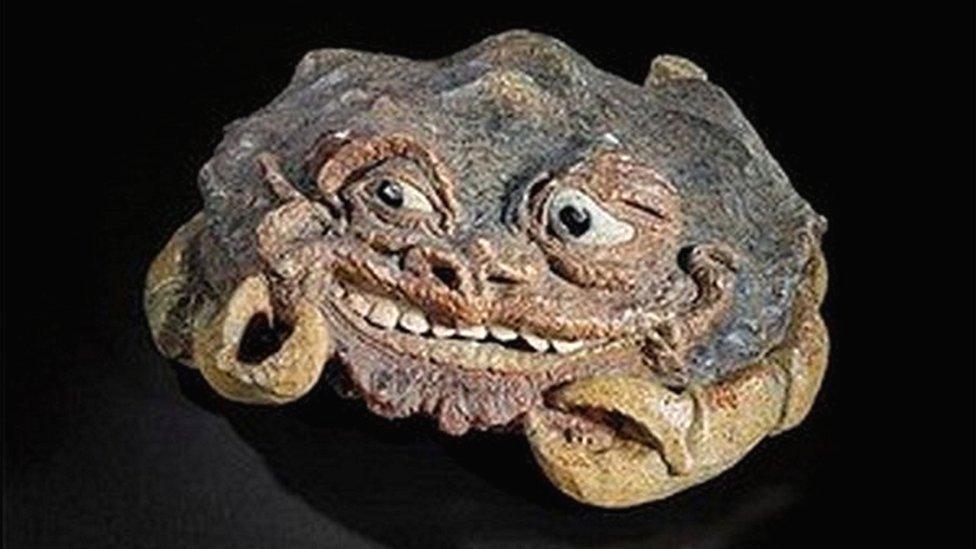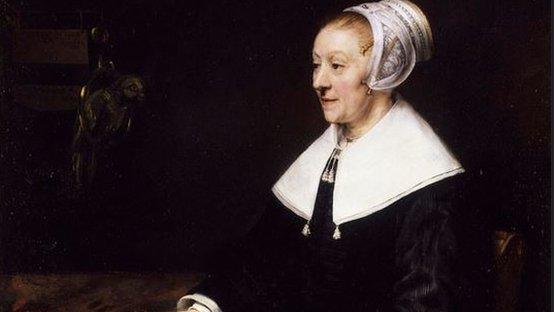Export ban placed on 'grotesque' Victorian crab
- Published

The toothy crustacean was created by London pottery merchants the Martin Brothers in 1880
A temporary export bar has been placed on a "grotesque" Victorian crab sculpture to try to keep it in the UK.
The toothy crustacean was created by London pottery merchants the Martin Brothers in 1880 and is one of the earliest pieces of sculptural art pottery created in the country.
It is feared the large ceramic will be lost abroad unless a UK buyer can be found to pay the £260,700 asking price.
Arts Minister Rebecca Pow described it as a "whimsical and eclectic treasure".
"I hope that a buyer can be found so we can keep this work in this country to inspire future generations of potters," she said.
'Truly grotesque creature'
The salt-glazed stoneware piece is 21cm (8in) high and 49cm (19in) by 42cm (17 in) wide and was sculpted by Robert Wallace Martin.
He was one of four brothers who were among the earliest art potters in the UK.
The group's works became a precursor to the studio pottery movement of the 20th Century and the crab, which was one of their first works they created, recently sold for a record price for a Martin Brothers' piece.
Ms Pow imposed the temporary ban following a request from the Reviewing Committee on the Export of Works of Art and Objects of Cultural Interest (RCEWA), which described the "truly grotesque creature" as "the pinnacle" of the brothers' work.
The decision on the export licence is deferred until 16 September, and could be extended until 16 December if a "serious intention" to raise funds to buy it for the full price is made, the Department for Digital, Culture, Media & Sport said.
- Published16 October 2015
